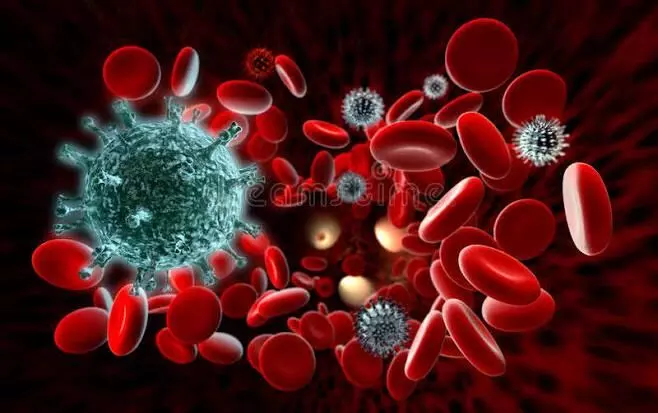
IISc researchers identify molecular biomarkers that help to diagnose viral infections
text_fieldsA new study published by the scientists from the Indian Institute of Science and clinicians from M.S. Ramaiah Medical College, reveals to have identified a set of molecular biomarkers that can be used in the differential diagnosis of acute bacterial and viral infections.
This new study is published in EBioMedicine, a journal that publishes research works of translational biomedical research the world over.
The researchers developed a test using blood protein biomarkers and sophisticated computer modelling to differentiate between bacterial and viral infections. The test measures the level of specific proteins that are released during infection.
"These biomarkers are different messenger RNA (mRNA) molecules found in the blood; differences in their levels can detect and predict with high probability if an infection is viral or bacterial," the study revealed. The scientists analysed data of patients (from publicly available databases, and samples collected from the Ramaiah Medical College in collaboration with a clinical team) and discovered a ten-gene RNA signature in the patients' blood that is produced in varying quantities for viral and bacterial infections.
The study also highlighted the need for accurate differential diagnosis in medical treatment. Such a test could also help in preventing the over-prescription of antibiotics which has been shown to lead to stronger and more resistant infections.
"Antibiotics are given even for viral infections in some cases because of misdiagnosis. With current methods, it can take a lot of time to test for bacterial or viral infections," said study author Sathyabaarathi Ravichandran, a Research Associate with Nagasuma Chandra, Professor at the Department of Biochemistry.
To make it useful in the clinic, the researchers devised a standalone score called VB10, which could be used for diagnosis, monitoring the stage of recovery after infection, and estimating the severity of the infection. VB10 accurately indicated whether a given blood sample had a bacterial or viral infection, across different bacteria and viruses and across different age groups.
The VB10 test was also applied to data from COVID-19 patients and could also accurately distinguish between the SARS-Cov-2 virus and other bacterial respiratory infections the study authors elucidated.
"This test can be done using RT-PCR. Given how common RT-PCR has become due to the pandemic, getting this test off the ground should not pose a major challenge," said Professor Chandra, while adding that VB10 could easily supplement existing tests for COVID-19.
This work was done in collaboration with clinicians at the Ramaiah Medical College and researchers Amit Singh, Dipshikha Chakravorty, and K. N. Balaji, the Professor, Department of Microbiology and Cell Biology at IISc. The team hopes to begin a trial study to translate their research from the lab to the clinic.























